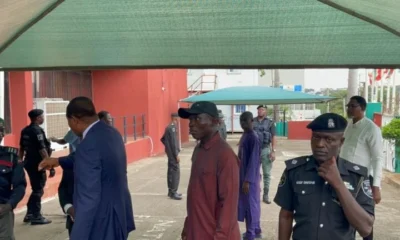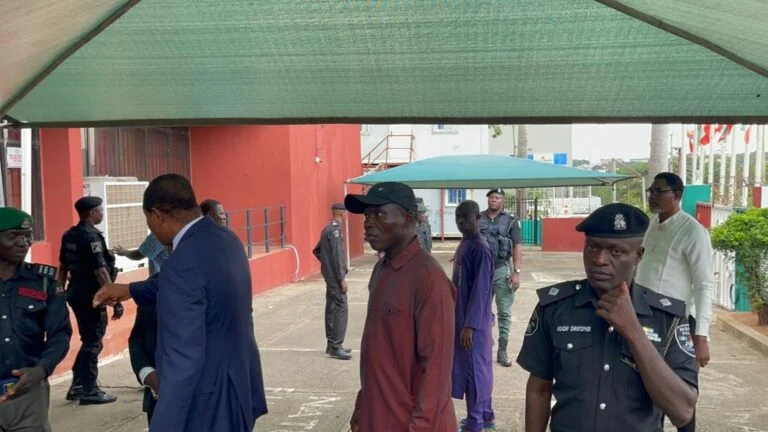Britain’s troubled Conservative government launched a range of measures on Monday, aimed at cracking down on record levels of migration, a major battlefield in a general election likely next year.
The United Kingdom declared that it would increase the minimum wage requirement for a skilled worker visa and forbid foreign health and social care professionals from bringing their dependents into the country.
Prime Minister Rishi Sunak’s office trumpeted the proposals as “the biggest clampdown on legal migration ever”.
But critics said it would damage the state-run National Health Service (NHS), which faces staff shortages.
Immigration is set to be a key issue in nationwide elections that must be held by January 2025 at the latest, and which the main opposition Labour party is currently favoured to win.
Sunak has pledged to reduce new arrivals and has been under pressure ever since statistics released last month showed that net migration to Britain hit a high in 2022.
The Office for National Statistics (ONS) said the number of people who arrived in Britain last year was 745,000 more than the number who left.
Interior minister James Cleverly said his plan would result in 300,000 fewer people coming to the UK in the coming years.
“Enough is enough,” the home secretary told parliament as he laid out his proposals, which will take effect early next year.
Cleverly said skilled foreign workers wanting a UK visa would have to earn £38,700 ($48,860), up from £26,200 and in line with the median full-time wage.
He exempted health and social care workers, but said they would be prevented from bringing family dependents.
NHS Providers, which represents hospital groups in England, said changes that might deter care workers from coming to the UK were “deeply concerning”.
Care England, a charity representing independent adult social care providers, said immigration had been “saving the social care sector”. Staff shortages have been exacerbated by Brexit.
Cleverly also raised the minimum income for family visas to £38,700 and confirmed restrictions on international students bringing dependents.
He reaffirmed that Britain would increase the surcharge that migrants pay to access the NHS by 66 percent, to £1,035.
Critics have said this effectively imposes a double charge on migrant workers, as employees also pay National Insurance charges, which go towards covering healthcare.
Cleverly added that the government would reform the “shortage occupation list”, which details jobs for which employers are not able to find enough British workers.
The Conservatives won a landslide under the leadership of Boris Johnson at the last election in 2019, largely on a promise to bring net migration numbers down.
The party has repeatedly promised that leaving the European Union, which ended the free movement of people from member states, would allow the UK to “take back control” of its borders.
But regular migration has soared since Britain formally left the EU in January 2020. In 2021, net migration was 488,000.
The ONS data piled pressure on Sunak from his own MPs to take action, with some right-wingers arguing that the issue was “do or die” for the party.
In opinion polls, the Tories, in power since 2010, lag well behind centre-left Labour, which also claims regular migration is too high.
Labour’s home affairs spokesperson Yvette Cooper accused the Conservatives of being in a “chaotic panic” over immigration.
“Today’s statement is an admission of years of total failure by this Conservative government,” she told parliament.
Sunak is also struggling to cut the number of irregular arrivals crossing the Channel from northern France on small boats.
About 30,000 have undertaken the dangerous crossing this year.
The government has deemed such crossings illegal but its much-trumpeted plan to deport asylum seekers to Rwanda was struck down by the courts last month.
Cleverly is due to visit Kigali soon, possibly this week, to finalise a new treaty. The government has also said it is working on “emergency legislation” to get deportation flights going by spring.
Credit: Channels TV

 BIG STORY5 days ago
BIG STORY5 days ago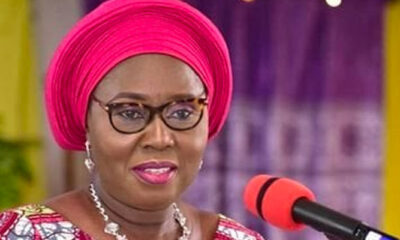
 BIG STORY5 days ago
BIG STORY5 days ago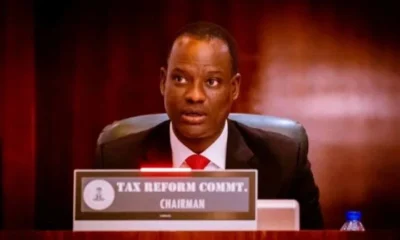
 BIG STORY3 days ago
BIG STORY3 days ago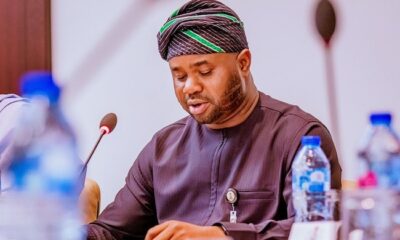
 BIG STORY4 days ago
BIG STORY4 days ago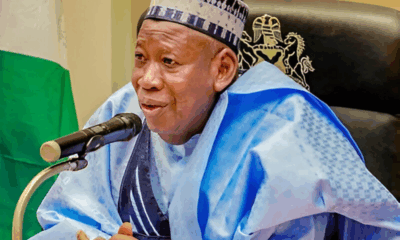
 BIG STORY3 days ago
BIG STORY3 days ago
 BIG STORY4 days ago
BIG STORY4 days ago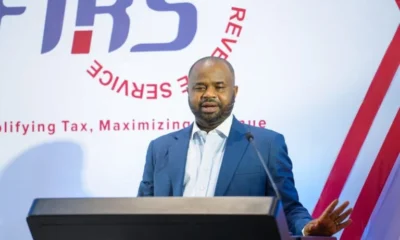
 BIG STORY4 days ago
BIG STORY4 days ago
 BIG STORY3 days ago
BIG STORY3 days ago









